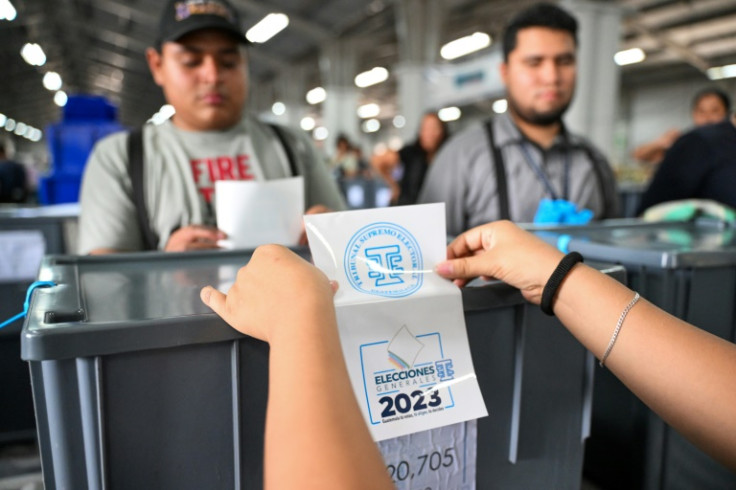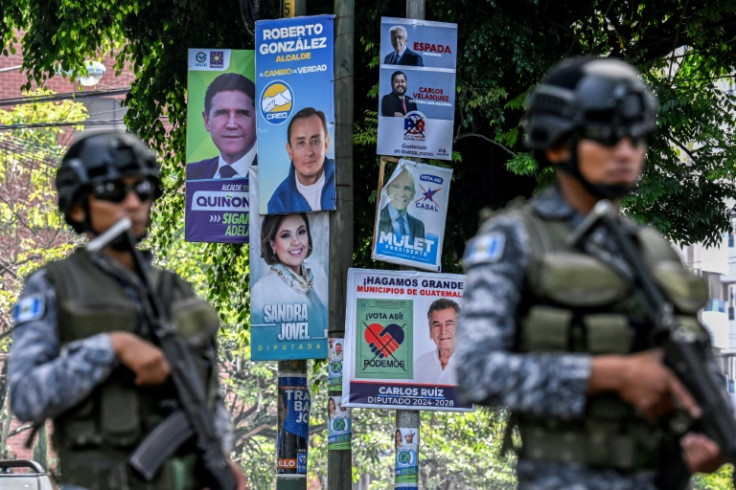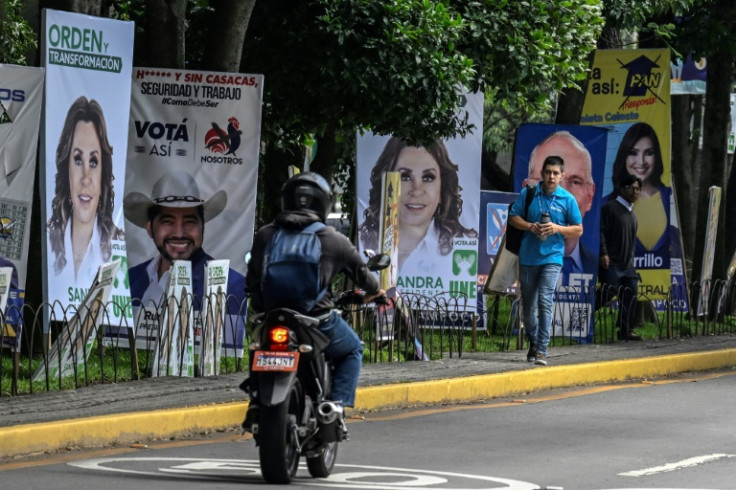'All The Same': Guatemalans Go To The Polls With Little Hope

Guatemalans vote Sunday for a president that some hope, but few expect, will finally solve the problems of crushing poverty, violence and corruption in the Central American country.
Two popular candidates were disqualified in electoral tribunal decisions widely deemed questionable, leaving a dictator's daughter, a former first lady and a UN diplomat as the frontrunners in a crowded field of 22 candidates.
The country of 17.6 million is one of the poorest in Latin America, a reality that has, along with high rates of violent crime, compelled hundreds of thousands to risk the perilous migrant journey north toward the "American dream."
Rights groups have expressed increasing concern over perceived efforts to crack down on prosecutors and journalists, in an apparent bid by the government to protect a corrupt system benefiting those in power.
Under outgoing conservative leader Alejandro Giammattei, several former prosecutors from the International Commission against Impunity in Guatemala (CICIG), a UN-backed entity closed by the government in 2019, have been arrested or forced into exile.
Earlier this month, the founder of a newspaper critical of the government was sentenced to six years in prison on charges of money laundering, a move decried by press freedom groups.
The newspaper founded by Jose Ruben Zamora has been forced to close, and several of its journalists have fled the country.
"All the candidates are the same and only come to rob (the people). I still don't know if I'm going to vote," street vendor Nestor Figueroa told AFP in the capital Guatemala City.
Guatemalans are asking for "a stop to all the excesses that we now see in terms of corruption," said political analyst Renzo Rosal. But despite the "deep reforms" promised by this year's presidential candidates, Rosal said he remains doubtful much will change after the elections.
In the latest poll by the Prensa Libre newspaper, center-left candidate Sandra Torres -- the ex-wife of deceased former leftist president Alvaro Colom -- was leading the race with 21.3 percent, followed by centrist career diplomat Edmond Mulet with 13.4 percent.
In third place, with 9.1 percent, is right-winger Zury Rios, daughter of former military strongman Efrain Rios Montt.
All three oppose legalizing abortion and same-sex marriage in a staunchly Catholic country, and have vowed to crack down on violence and corruption.
The current polling suggests a high possibility that the election will go to a runoff on August 20, with no single candidate likely to obtain the 50-percent minimum share of votes required to win in the first round.
Two popular candidates -- former poll favorite Carlos Pineda and Thelma Cabrera -- had their candidacies invalidated by the Supreme Electoral Tribunal (TSE) in decisions their supporters have claimed amount to political sidelining.
According to the Prensa Libre poll, distrust in the TSE is high, with more than one in ten respondents saying they intended to cast a blank vote in protest.
Some 9.4 million Guatemalans are eligible to cast a vote.
Guatemala is one of the most unequal countries in Latin America, according to the World Bank.
More than half its inhabitants live in poverty and half of all children under five suffer from chronic malnutrition, according to the United Nations.
Insecurity is another major election issue. Guatemala's homicide rate is 17.3 per 100,000 inhabitants -- about three times the world average, according to the UN.
In 2022 there were 4,274 murders, half of them attributed to drug trafficking gangs.
Torres and Rios have both evoked the tactics of President Nayib Bukele in neighboring El Salvador in his controversial "war" on gangs which has won him adoration at home but opprobrium abroad over rights concerns.
Polling stations open at 7:00 am (1300 GMT) and close 11 hours later, with the first results expected within hours.
Also up for election are 160 members of Congress, 340 mayors and 20 delegates to the Central American Parliament.
Guatemala does not allow successive presidential terms, and voting is not mandatory.


© Copyright AFP 2024. All rights reserved.





















